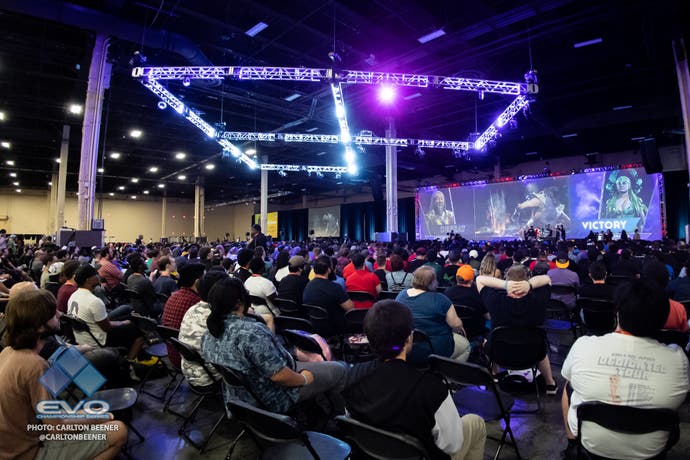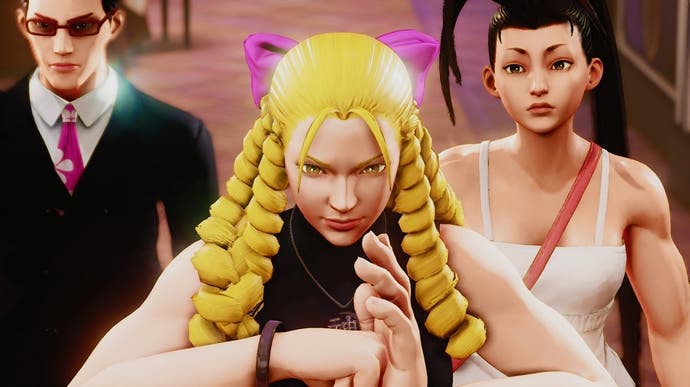The fighting game community should do more to combat its sexual harassment problem
What next after the FGC's Me Too?
Early August 2019, Evo - the world's largest fighting game tournament - concluded on a tragic note. What should have been a weekend that ended with celebration was instead tarnished by reports of sexual harassment and spiked drinks at the event's afterparties.
What followed was a surge of support from many of the most prominent voices within the fighting game community (FGC). Victims spoke out about their past traumas, and there was a collective call for action. In what can be interpreted as the FGC's very own Me Too movement, well-known figures in the community, such as competitor Leah "Gllty" Hayes and photographer Chris Bahn, had allegations raised against them, resulting in public apologies from the pair and a ban forbidding them from entering some of the USA's largest tournaments.
This recent turmoil has raised uncomfortable and important questions about the FGC, on whether those guilty of these actions are simply bad actors, or whether the FGC has a deep-rooted problem at its core. I talked with women in the community who've worked in this environment long enough to know the reality of what it's like at these events, about their thoughts on the culture, recent allegations, and what needs to change.
"I think that the FGC has always had a terrible sexual assault and harassment problem, it's just that now people are getting more confident and speaking up about their stories," Jeannail 'Cuddle Core' Carter, one of EQNX Gaming's Tekken 7 competitors told me. "It's taken a while, but it's been happening for many many years."
According to those I spoke to, while sexual harassment has always been a problem in the FGC, it's far from a problem unique to the FGC. Full-time streamer and competitor Miria 'Phantom Miria' Ferreira says: "I feel like it can happen in any community not just the FGC. It can happen in the real world, it can happen in other esports areas, it's just something that's common and I feel like people aren't talking about it enough."
But the FGC has a long and unique history, emerging from the male dominated arcades where many of the genre's most popular franchises first found their audience. In this environment, a culture was created, one in which, ostensibly, anyone could play, regardless of where they were from or what they looked like.
That's the image the FGC wants to project. But for women, this image has not been the reality.
"In the FGC, we as girls deal with a lot of misogyny, it's a huge part of these incidents because they feel like they're entitled when they see a cute girl," Ferreira says. "When I first started playing, the first thing I would get asked was, 'Are you here to see your boyfriend play?' Or when I was sitting down to play they'd say, 'Oh it's just a girl, they don't know how to play.' Misogyny leads to that, because it's a male dominated environment."
Carter explains: "There's a part of the FGC culture that has definitely made this exist. There seems to be a lack of social respect that the assaulters seem to have in terms of knowing personal space, or just respecting people in general."

The response to recent allegations has been mixed. On one hand, many of the FGC's biggest players and commentators have spoken out against sexual harassment, supporting those who've come forward. However, victim blaming has been a common occurrence on social media.
"It's painful because I have girlfriends in this community, and they've been hurt," Carter says.
"It's tragic to see how some people have been responding to it and I've been furious thinking, how dare you try and belittled what has happened to these women. The first thing [they] do is shame the women for even speaking up. Do you know how traumatising that is?"
Ferreira adds: "It doesn't matter what [the victim] could have done, we could talk about prevention and how these situations could have been avoided, but that's not the issue. Women need to be able to have fun and be themselves without worrying that they're going to be sexually assaulted."
Tournament organisations such as CEO Gaming and Big E Gaming have not sat on their hands following these allegations. They've issued bans to both Gllty and Chris Bahn following investigations into the situation.
Street Fighter 5 developer Capcom has also banned Gllty from all of its events globally, effectively putting an end to her esports career.
But is this enough to keep the FGC safe?
Emily Tran, the owner of EQNX Gaming, believes it's a good first step. "I think it sets a precedent and it shows that these offences aren't going to be swept under the rug," she says. "But of course, there's still a lot of things that we need to work on."
While several tournaments have issued strongly-worded statements condemning the recent sexual harassment allegations, it's worth noting that Evo - the biggest tournament in the world and an important event to attend for professional players - has yet to make a statement. Despite repeated requests for comment from Eurogamer, the people behind Evo failed to respond. Evo's code of conduct, detailed on its official website, states "harassment is not tolerated" at the tournament.
"There needs to be updates on these events all the time," Carter says. "A sort of reminder that these people do exist, because for some reason in the FGC some people tend to have selective memories when it comes to players that do terrible things."
With sexual harassment a present and seemingly accepted risk for women who attend events, I wondered whether the FGC could be seen as the welcoming and diverse community it claims to be.
On one hand, Tran stands by the community. "We've been getting a lot of attention about sexual harassment, but the good thing about it is we are outing these predators and offenders, and we are taking action," she says. "I think that sends a message that we don't tolerate this in the community."
However, Carter believes the wider community isn't as accepting as it's thought to be. "I hear people say the FGC is so diverse and accepting, and in the back of my head I'm thinking 'that's BS' because it's really not," she says. "It has parts that are accepting, but those are places specifically created so people can feel welcome."
All three of the women I talked to remained optimistic for the future despite recent events, and said they wanted a community that lives up to the idealised version of the FGC, where anyone can step up and play. Ferreira pointed to Combo Queens' Women of the FGC panel held at Evo this year as a good start.
"I'd like to see more panels by women like the Women in the FGC panel at Evo," Ferreira says. "We've seen girls coming out and killing it at tournaments. I want it to be that way, people doing what they love, playing the game, having fun."
If you think you've been affected by rape or sexual abuse, information and support are available. Survivors Trust provides support and signposting for survivors of rape, sexual violence or childhood sexual abuse. Victim Support provides emotional and practical help to victims or witnesses of any crime.


